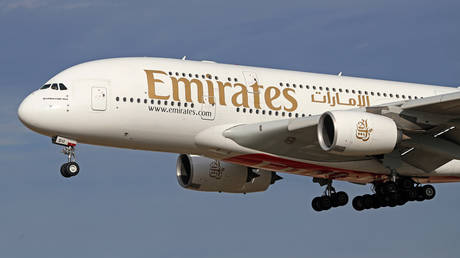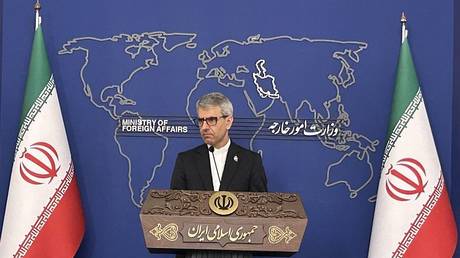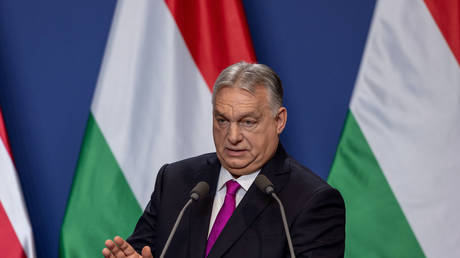
The airline has been forced to make costly adjustments to its fleet due to delivery delays, its president has said
The president of Emirates, one of the world’s largest international airlines, has said the carrier will have “serious conversations” with Boeing after the US manufacturing giant announced that its 777X model will be further delayed.
Boeing confirmed last week that the first delivery of its widebody aircraft will be postponed to 2026, nearly six years after the 777X aircraft was due to reach customers.
Commenting on the delay, Emirates president Tim Clark stated on Monday that the airline “has had to make significant and highly expensive amendments to our fleet programs as a result of Boeing’s multiple contractual shortfalls, and we will be having a serious conversation with them over the next couple of months.”
The United Arab Emirates flagship carrier is also one of Boeing’s largest widebody customers, with an outstanding order for 150 aircraft.
The first 777Xs were originally scheduled for delivery in 2021, but the company has repeatedly pushed back the launch date.
In August, the manufacturer suspended 777X flight tests after discovering cracks in a critical component connecting engines to wings.
The delivery delay comes as the company grapples with certification hurdles and labor strikes involving nearly 33,000 of its US workers. The ongoing strikes have undercut the production of Boeing’s best-selling planes such as the 737 MAX, 777 and 767, and halted its 777X test program.
Last week, Boeing also announced plans to cut 17,000 jobs over the coming months, representing nearly 10% of its workforce, as the aerospace giant’s losses continue to mount.
Clark expressed frustration over revised timelines for 777X deliveries, which have been shared by other airline executives awaiting supplies amid strong travel demand.
“Given the Type Inspection Authorization halt on the 777X with no clear timeline for the restart, coupled with strikes entering a fourth week, I fail to see how Boeing can make any meaningful forecasts of delivery dates,” he stated.
Emirates has had to launch a $3 billion retrofit program to include 191 aircraft to accommodate the postponement.
The program involves upgrading the carrier’s existing fleet of Boeing 777 and Airbus A380 aircraft, installing next-generation seating and overhauling the interiors to extend their operations.
With extended delays, the airline has been forced to extend the lifespans of existing jets, increasing aircraft maintenance costs.




